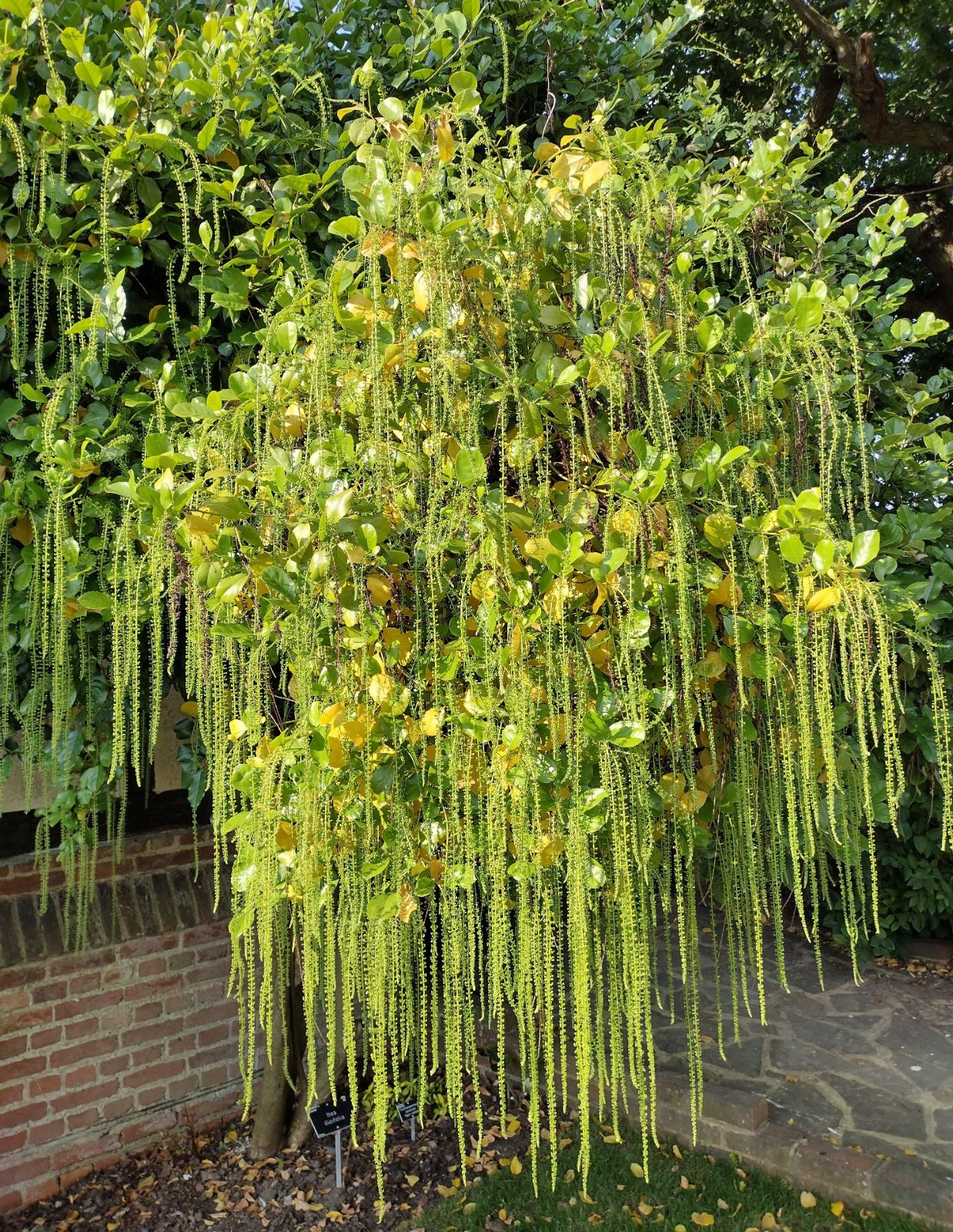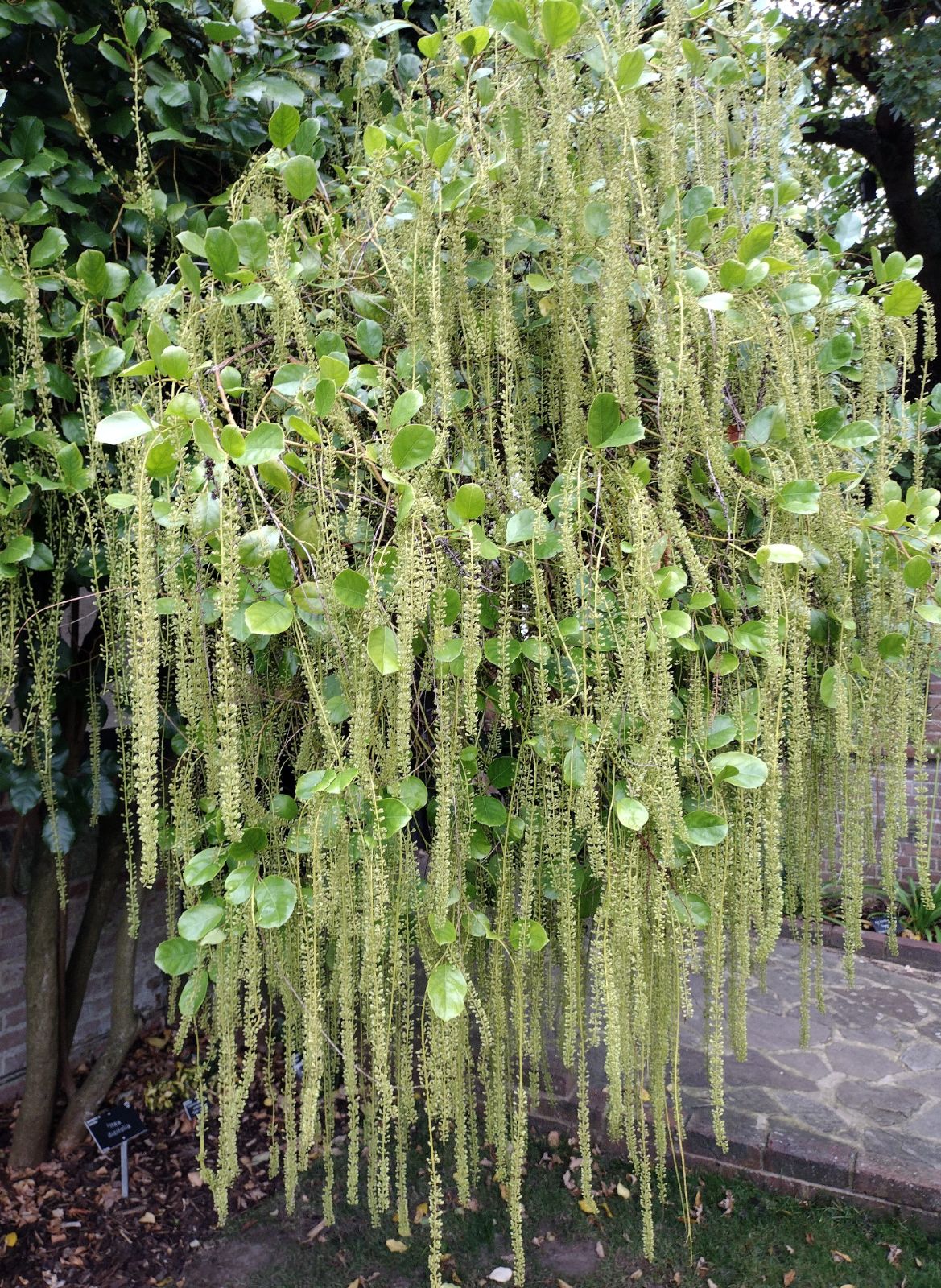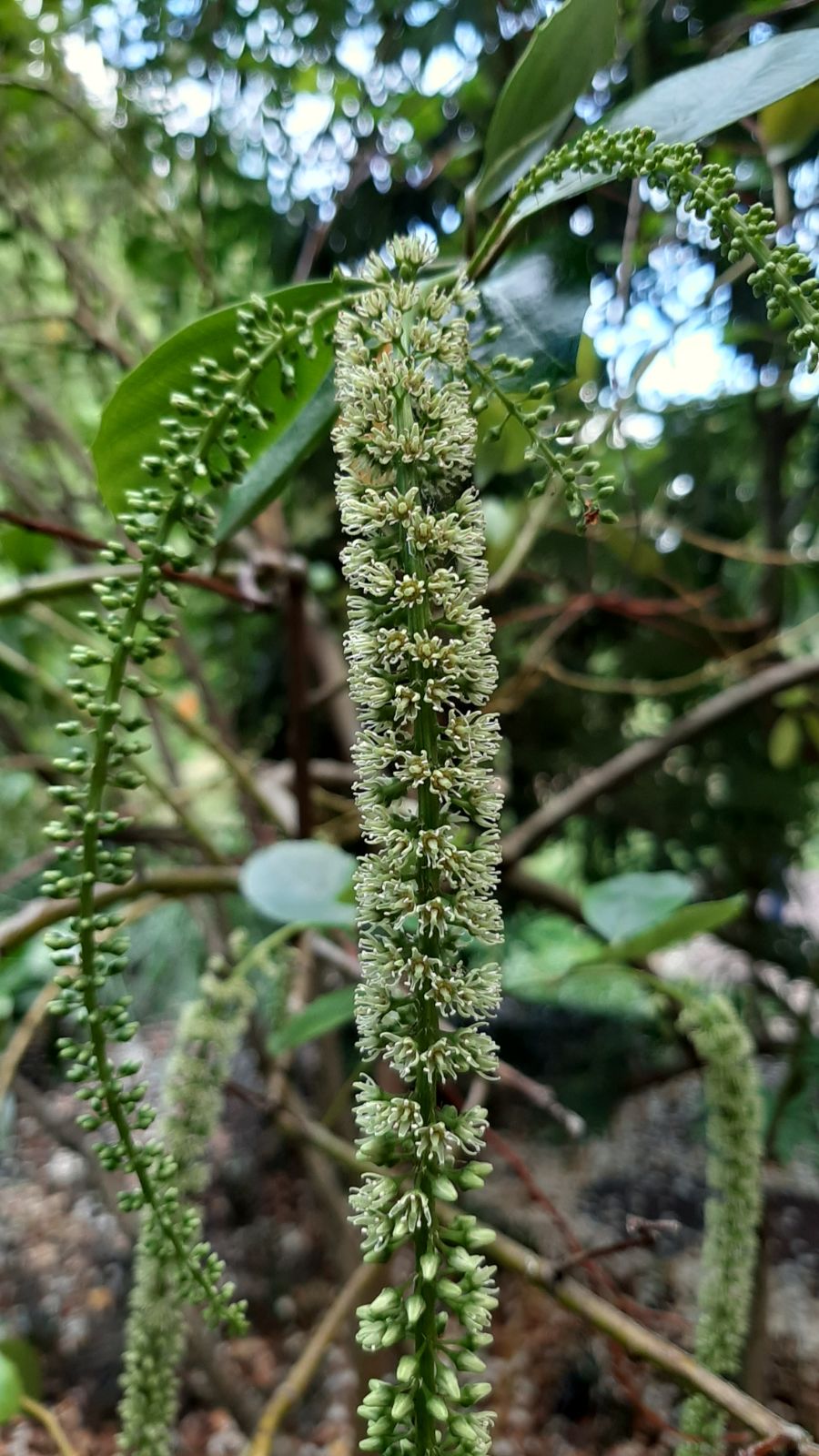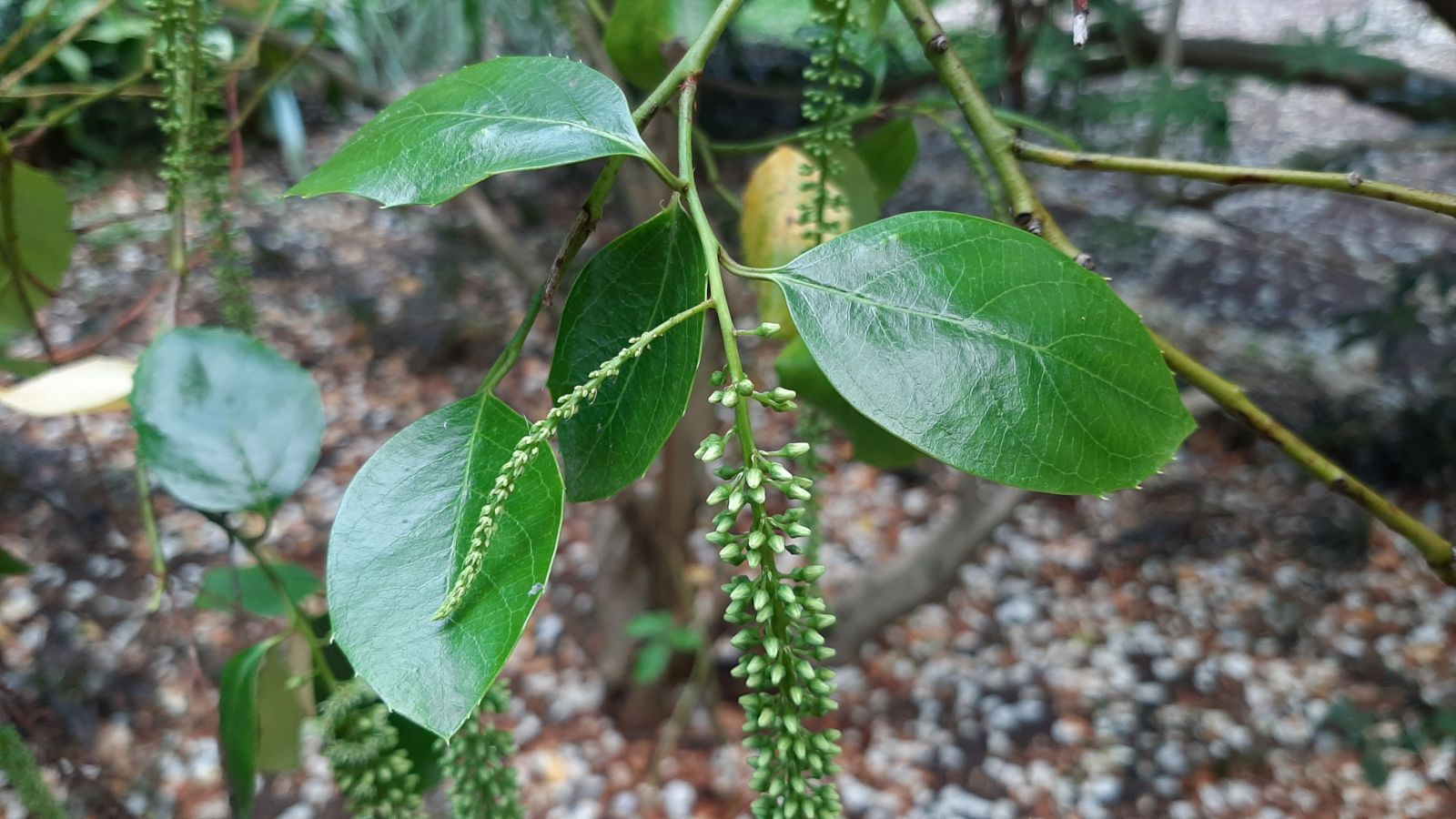Itea ilicifolia
Credits
Article from Bean's Trees and Shrubs Hardy in the British Isles
Recommended citation
'Itea ilicifolia' from the website Trees and Shrubs Online (treesandshrubsonline.
Genus
An evergreen shrub of bushy habit, said to attain a height of 18 ft occasionally in the wild, and already 6 to 12 ft high in this country; stems quite glabrous. Leaves holly-like but thinner, broadly oval, 2 to 4 in. long, 11⁄2 to 23⁄4 in. wide, the apex short-pointed, dark glossy green above, paler below, both surfaces glabrous except for tufts of hair in the axils of the chief veins beneath margins armed with stiff spiny teeth; stalk 1⁄4 to 1⁄2 in. long. Racemes pendulous, arching 6 to 12 in. long, 1⁄2 in. wide, crowded with greenish-white flowers; petals narrow, 1⁄6 in. long. Blossoms in August. Bot. Mag., t. 9090.
Native of W. China; discovered by Henry, and first raised from seeds sent by him to the late Lord Kesteven, with whom it flowered at Casewick in 1895. It is not hardy at Kew except against a wall, but is very suitable for the rather warmer parts of the British Isles. At Borde Hill, Sussex, there is a bush about 8 ft high and as much wide, in perfect health. Its foliage is handsome and its racemes elegant. Easily increased by cuttings of moderately ripened shoots.
From the Supplement (Vol. V)
The reference to the plant at Borde Hill, Sussex (page 461) must go into the past tense, as it had to be removed when half a century old and still in perfect health.




